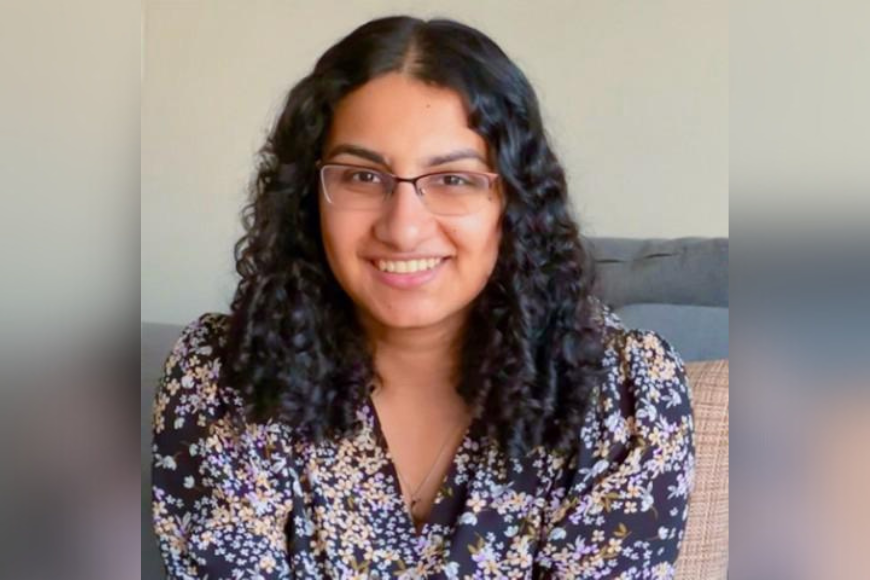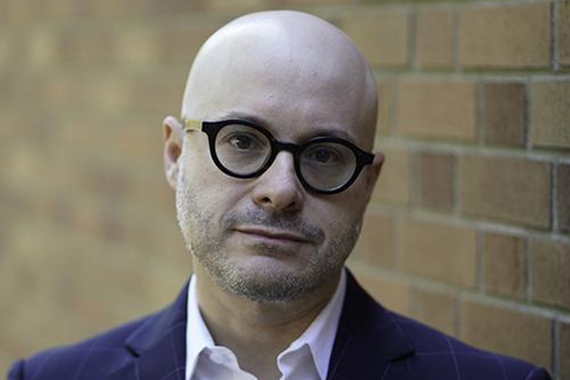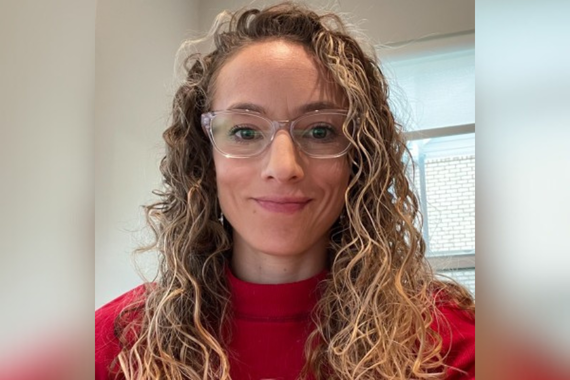Challenging World Orders Through Collaboration and Critical Pedagogy
Nina Kaushikkar is a second-year PhD student studying international relations and comparative politics, focusing on decolonial feminist approaches to sovereignty, violence, and community formation with an emphasis on the Global South.
She graduated from Carleton College with bachelor’s degrees in political science/international relations and English. While at Carleton, she participated in the Mellon Mays Undergraduate Fellowship, “aimed at diversifying the professoriate in the humanities and humanistic social sciences by providing mentorship and financial support.” In her spare time, she loves to cook & bake, travel, hike, read, solve puzzles, and spend time with her friends & family.
Read the below Q&A to learn about Nina’s experiences as a political science PhD student.
What are your goals in the program? What experiences and opportunities have you had in the program?
I aim to participate in conversations in and outside the discipline that challenge dominant, hegemonic, oppressive world orders and grammars through the lens of storytelling, narrative, and fiction. Many people’s first introductions to international politics come through stories—myths, folktales, poetry, novels, and personal family histories. I contend that these are a distinct way of “doing” international relations, in that they provide a way to reformulate possibilities for community formation and global relations within an imperial core.
I am also committed to collaboratively building a learning environment where marginalized students can feel represented, welcomed, and safe to pursue their research, especially when it is informed by their lived experience. Despite nationwide official commitments to equity and inclusion in the aftermath of George Floyd’s murder in 2020, and the ensuing local and global moment of reckoning with systems of racial capitalism, inequities in academia persist.
This year, I have joined the department’s DEI Committee and the Graduate Student Life Committee to advocate for increased protections for graduate students and workers. Drawing on my lived experience and the context of my work on various forms of discrimination and exclusion, I aim to bring attention to these patterns in the classroom and in conversations about IR. This regularly informs my pedagogy as a teaching assistant: I try to ensure that my students feel comfortable contributing to political and social thought in and outside of academia and that they feel they belong in this discipline.
What have been your biggest challenges as a graduate student? How have you overcome them?
A significant challenge has been finding space for myself and the work I do in my field and the discipline at large, given my own experiences and those of my peers in feeling marginalized and excluded by disciplinary norms, boundaries, and practices. These experiences are compounded by larger patterns of exclusion and inequity. For instance, emblematic of these tendencies, within this department, it has been nearly two decades since the last South Asian woman graduated with a PhD. Numerous articles, as well as a 2022 APSA task force that examined issues of inequality along lines of race, gender, ethnicity, and sexual orientation, have confirmed the widespread nature of feelings of rejection, isolation, and insecurity—financial or otherwise—that marginalized students in political science regularly face.
I have found a great deal of strength from and community with other graduate students who have endured similar experiences, both inside and outside this department. Through shared work to build relationships that center love, care, and solidarity, I am lucky to have found other scholars who seek to make academia a more joyful space. I have also greatly benefited from the support, encouragement, and reassurance I’ve received from faculty mentors. Additionally, I am immensely grateful to groups on campus like Students for Justice in Palestine and affiliated organizations, who remind us of the responsibility we have as scholars of politics to speak out about genocide, injustice, and systems of domination and exploitation.
What are some of the greatest skills you have learned as a graduate scholar? What has helped you grow as a scholar?
One of the most valuable things I’ve learned from both my time in graduate classes and as a TA is student-centered approaches to teaching. By observing the strategies professors implement in the classroom, I have been building crucial skills in developing good pedagogical practices and frameworks. Such practices include encouragement and affirmation, both inside and out of the classroom; being proactive in access and accommodation needs; and effectively moderating classroom discussions, particularly around sensitive topics.
Additionally, learning from and thinking with my own diverse communities of scholars—both within and outside the department—has heavily influenced my approaches to pedagogy and my personal and professional development. I have learned how to engage in research relationally and with an emphasis on decolonial, feminist, anti-caste, and anti-racist practices that challenge the power hierarchies and imbalances present within academic scholarship.
What advice do you have for prospective and current graduate students?
My biggest piece of advice would be to find your people and build your community in graduate school. This is a collective endeavor, and having those networks of support is critical both during the program and after graduation. These groups also provide a space to safely explore and think creatively about your research interests and ideas; having a group of people who support you and read your work generously makes it easier to share your ideas with the world.
My other piece of advice would be to find something that brings you joy outside of your work, whether that’s a hobby or a daily routine—this helps avoid burnout and allows you to make the most of what the program has to offer.


